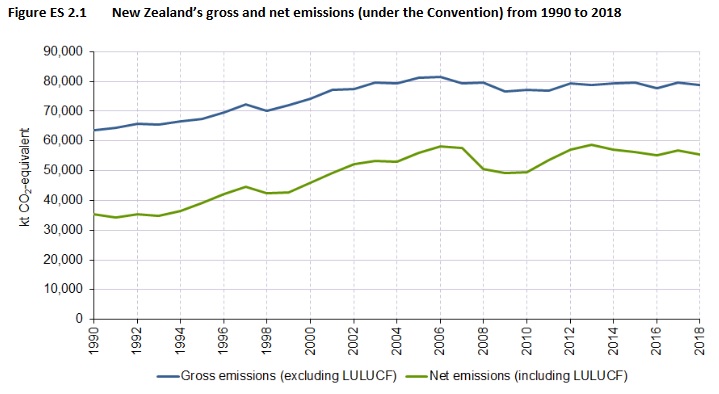
This year the government has also released an interactive emissions tracker, where you can poke around in all the data since 1990, and explore long-term trends. And the standout trend is that gross emissions have been more or less static since 2007, or maybe 2003, depending on what you think of the 2005-6 peak (net emissions bounce around a lot more, depending on deforestation rates, which shows the huge difference planting trees and not cutting them down can make). This is kindof good news - at least we're not getting any worse - but we need emissions to actually decrease. And instead they're just stubbornly sticking there at ~80 million tons.
Which I guess shows you that current policy - an ETS loaded with free allocations and pollution subsidies, rigged to keep carbon prices low, and which excludes our most polluting sector, simply isn't working. If we want to reduce emissions and meet our targets, we need to do more. Removing those obvious problems from the ETS is part of that, but really we need the government to come up with direct decarbonisation plans, including targets and deadlines, for each sector: plans to eliminate fossil fuel transport, fossil fuel energy, fossil fuel extraction (which causes 1.7 million tons a year of fugitive emissions), and mandatory offsets and herd reduction for livestock emissions. They're groping at the beginnings of this, with the renewables targets and reports on decarbonising industrial heat, but they need to go harder and faster, and target agriculture's sacred cows.
(Note that there is a two-year lag in emissions reporting, so this data is for 2018. We won't see the full impact of the pandemic on emissions until the report released in 2022).